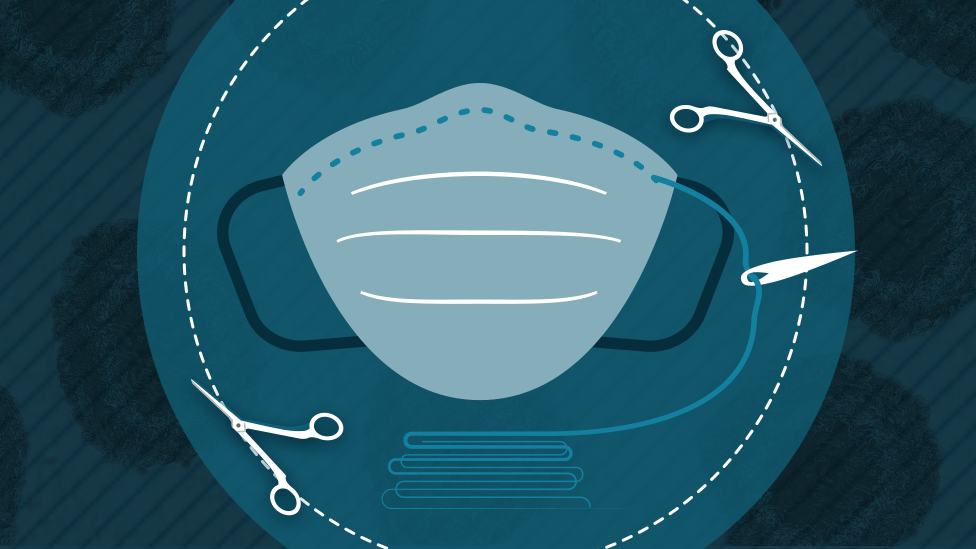Coronavirus: Bus firms face struggle as lockdown eases
- Published
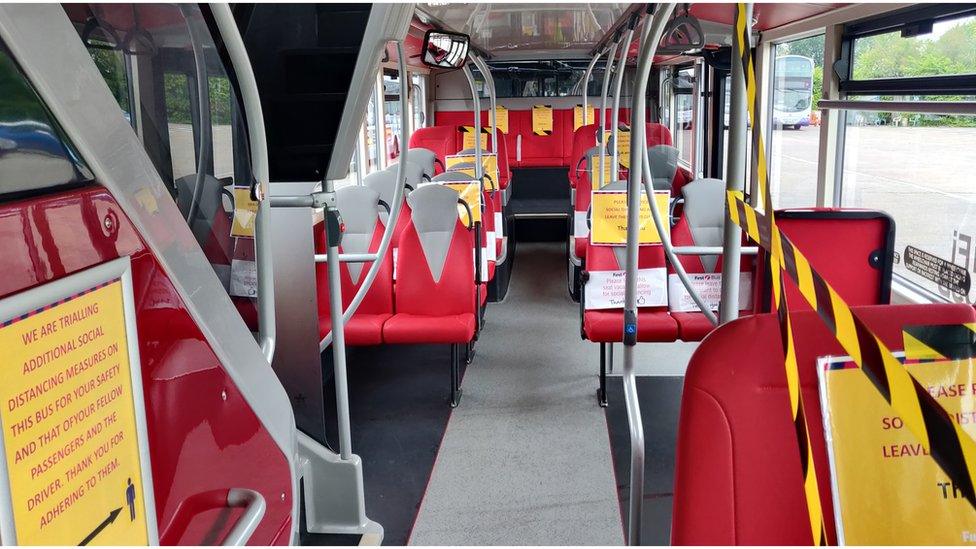
Social distancing measures being trialled on the number 24 bus in Bristol
Bus operators face a challenge to restore services for returning workers amid union claims lockdown easing plans had caused "chaos and panic".
With fewer passengers allowed on each bus and the government encouraging people to avoid public transport, firms say fares will not cover their costs.
Unions are also concerned about safety amid reports of higher death rates linked to Covid-19 among male drivers.
The government says it will work with bus operators.
How many buses are running?
The Confederation of Passenger Transport UK (CPT) said bus operators were running about 40% of their services for about 10% of the passengers they would expect at this time of year.
Bristol bus operator First West of England is running two buses in tandem on some peak routes to boost seat numbers while social distancing is in place, according to the Local Democracy Reporting Service.

Boss James Freeman: "We've tried to reorganise the business to face the challenge of how we protect people from coronavirus at the same time as providing a minimum level of service for the people who need to travel.
"They are essential workers who haven't got any other form of transport. There aren't that many - patronage is down to about 8%.
"Buses are still running from first thing in the morning to late at night. Most are completely empty. It's turned our world upside down."
How are bus firms keeping people safe?
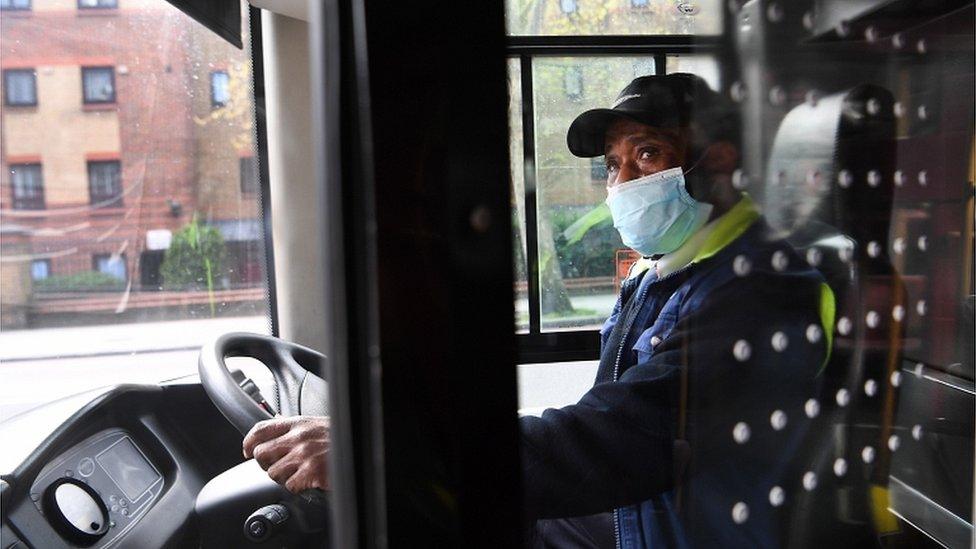
A total of 26 bus workers in London have died from Covid-19 so far
Social distancing would differ depending on the layout of buses, but might typically involve passengers only sitting in window seats with a row's gap between them, the CPT said.
In that scenario, "farebox revenue would not be enough to cover the industry's costs", the CPT said, and it would "need some form of investment from central government to make that work".
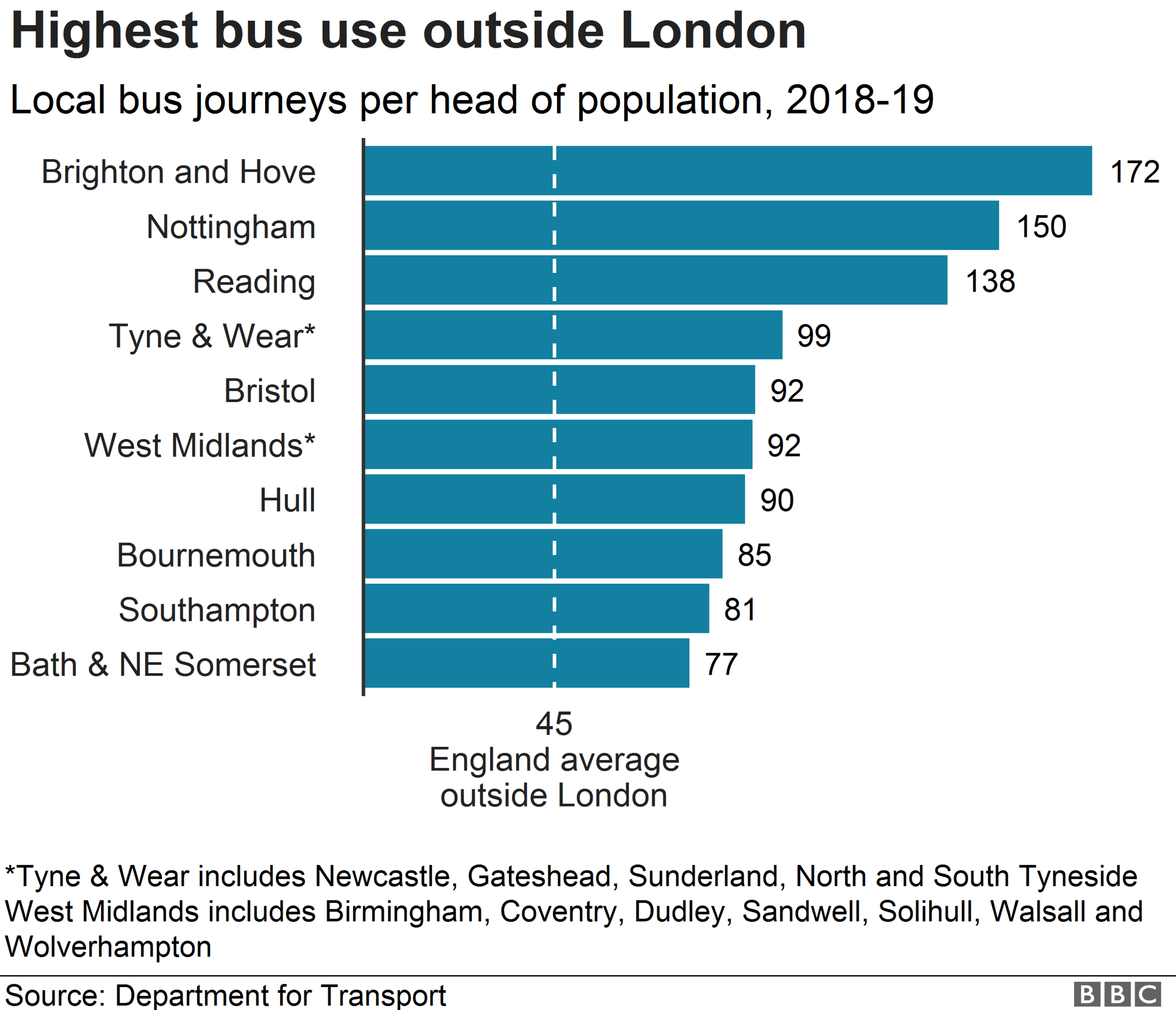
First West said it was trialling signs to advise passengers on where to sit and will be taping off some areas - steps that limit the number of passengers buses can carry.
Mr Freeman said: "There are 20 seats on a double decker. That should reassure people there won't be someone sitting behind them, breathing down their neck."
Transport for London (TfL) said the requirement to keep 2m social distancing wherever possible meant the bus network would only be able to carry around 13-15% of the normal number of passengers even when all services were operating again.
Its advice to passengers who cannot avoid using public transport is to travel outside of peak times, wear a face "covering", carry a hand sanitiser and wash hands before and after travel.
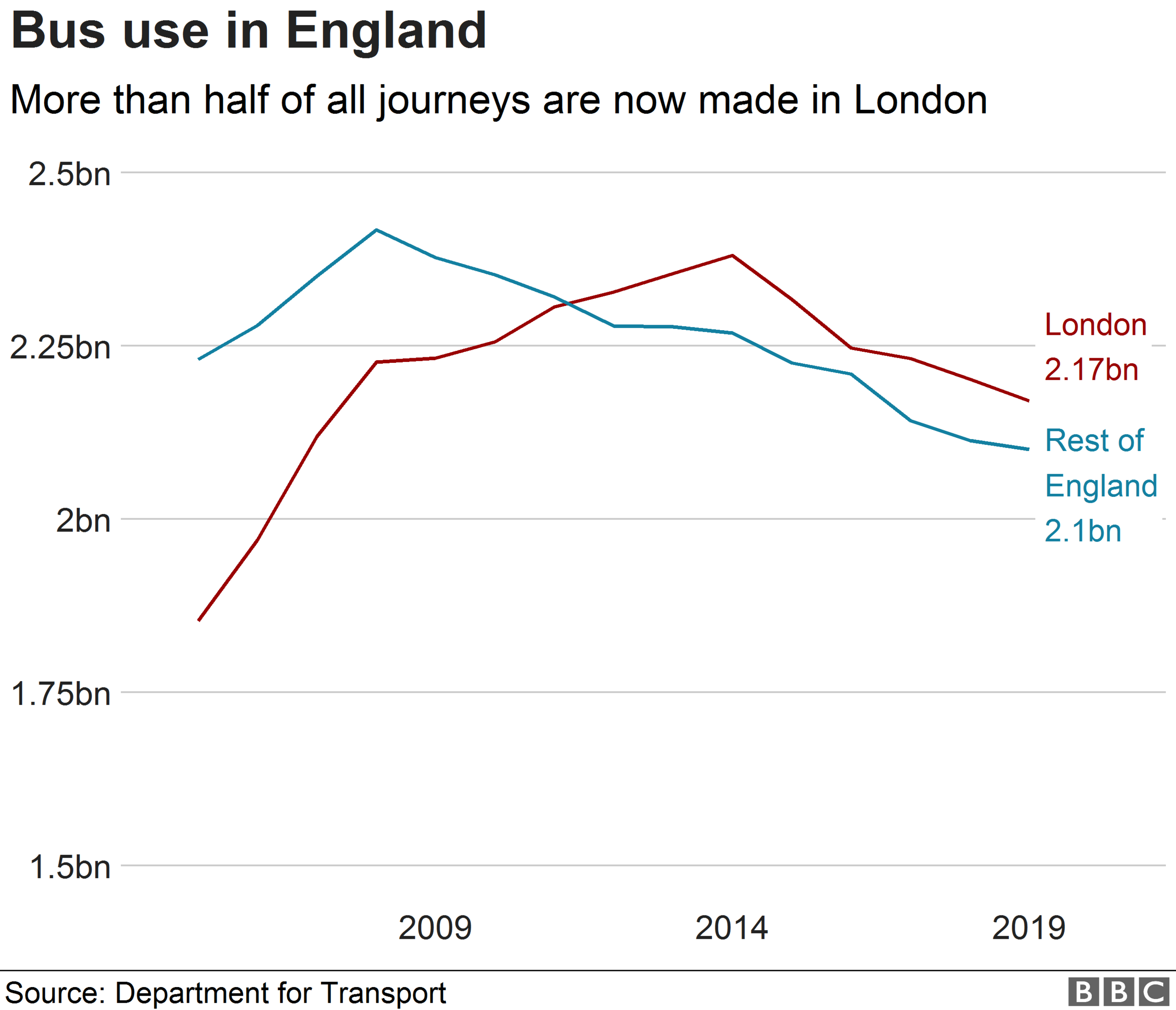
Transport Salaried Staffs' Association (TSSA) union general secretary Manuel Cortes said Prime Minister Boris Johnson's announcement on Sunday to "actively encourage" people to return to work, but discouraging the use of public transport had caused "chaos and panic".
"Frankly, it's dangerous and will put the lives of bus drivers, and all public transport workers, at risk," he said.
London bus driver Johnie MeHarry is a senior shop steward for his branch of the Unite union.
Though he has been driving throughout the pandemic, he says he has only just been issued with a face mask.
Mr MeHarry says he limits his chance of infection by driving with the window open and washing his hands regularly.
"Drivers are worried it's going to be overcrowded," the father-of-two, 39, said. "It's already happening on a lot of routes.
"The more people there is on the bus, the more risk there is of contamination.
"What we are calling for is a fully-sealed-off cab," he said. "TfL is working on this, but it won't be in place for tomorrow when this increase is going to happen."
Mr MeHarry said central London routes had been quiet during the lockdown, though he expects that to change over the coming weeks.
Despite his fears, Mr MeHarry said he was still proud to be keeping the health workforce moving.
Will bus companies be financially viable?
Mike Brown, London's transport commissioner, said: "Our intention is to progressively build up service levels to as close to pre-pandemic levels as possible, but it is clear life simply won't be swiftly returning to what it was before.
"The travel demand challenge facing us outstrips that faced during the 2012 games due to the national requirement to maintain 2m distance between passengers wherever possible."
First West's Mr Freeman said: "With the number of the passengers dropping, they have taken a large chunk of revenue. Most costs are being met from the public purse.
"When the lockdown is relaxed we're expecting to be asked to put on as much as 80% of the service back on. It can only be done if central government is willing to pay."
Robert Williams, the chief executive of Reading Buses, said: "There is a balance of need between domestic and economic necessities and minimising the transmission of the virus.
"We wouldn't be providing services if we felt it was fundamentally unsafe, but we also can't run services at a loss."

LOCKDOWN UPDATE: What's changing, where?
SCHOOLS: When will children be returning?
EXERCISE: What are the guidelines on getting out?
THE R NUMBER: What it means and why it matters
AIR TRAVELLERS: The new quarantine rules
LOOK-UP TOOL: How many cases in your area?
GLOBAL SPREAD: Tracking the pandemic
RECOVERY: How long does it take to get better?
A SIMPLE GUIDE: What are the symptoms?

Reporting team: BBC Shared Data Unit, Local Democracy Reporting Service. Charts by Daniel Wainwright

- Published11 May 2020
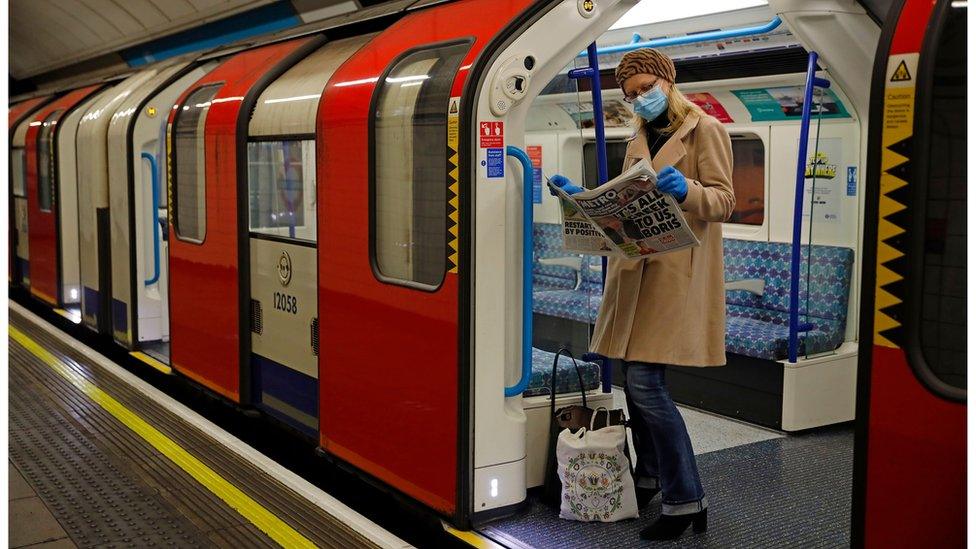
- Published1 July 2022

- Published11 May 2020
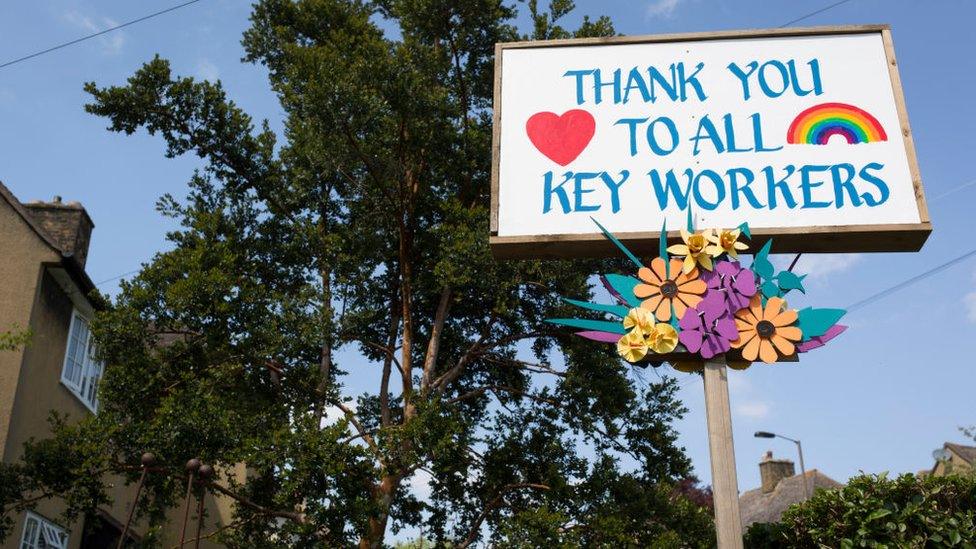
- Published11 May 2020
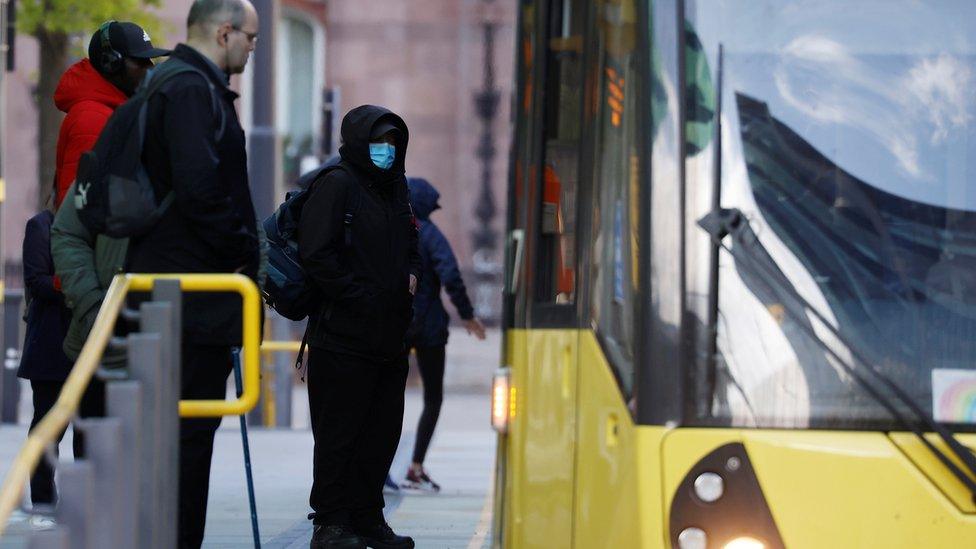
- Published13 January 2021
